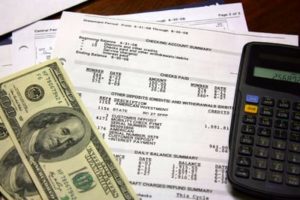In the past, you may have reviewed your credit score and found someone else’s information on your report?
With this new change, credit reporting agencies will be using a new three point (name, address, social security or date of birth) check system before adding liens and judgements to someone’s credit report. Hopefully, this will stop some information from appearing on the wring person’s credit report, thus lowering the credit score.
As of July 1, you may see liens and/or judgements that are not yours removed from your credit and therefore your credit score will go up. It’s estimated that 10 to 12 million consumers will see their credit scores rise by 10 to 40 points this past weekend.
Bottomline, you need to stay on top of your credit reports and check them regularly. Do you want to be reminded to check one of your credit report every four months, then sign up for my newsletter Money Choices and you will receive a reminder three times per year to help you stay on top of your credit report. www.JillRussoFoster.com




